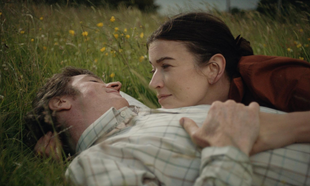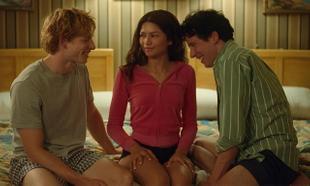This slight but charming romantic drama has a lot going for it but when asked to up the dramatic stakes late in the day it finds it can only meet the need artificially.
Shun Li (Tao) is in Italy working in a clothes factory until she pays back what she owes for her travel expenses and her work permit. She patiently awaits the day of 'the news' - when she's told that her young boy can join her in Italy. Moved to Venice to work in a café down at the docks, Shun Li ingratiates herself into Italian culture and meets fisherman Bebi (Serbedzija), a budding poet. Because they are both foreigners - he's from 'Yugoslavia' - a bond grows between the two…
Shun Li and The Poet is nice. It's a nice film. The characters are nice and are nice to each other. There are two antagonists but as bad guys go they aren't so bad: Shun Li's boss (Guo Qiang Xu) rejects her request for a half day to buy a present for her son, but is apologetic about it, while the overweight café loudmouth (Battitston) loafs about in a comical fashion. This gives the romance between the leads loads of room to blossom, which it does quietly and gently. Tao Zhao is graceful and polite while the bearded Serbedzija is a mile away from his nasty-foreign-guy from Taken 2. Even peripheral characters, like Bebi's fisherman friend (Paolini) and Shun's roommate (Wang Yuan), are allowed screen time to faff about nicely.
But then it's as if writer-director Andrea Serge realises it needs a serious injection of drama. Suddenly, the characters that buzz about the bar have a problem with their bearded friend involved with 'the Chinese Mafia' when there was no problem before, and the overweight café loudmouth unexpectedly starts putting his weight around, beating Bebi up over the faintest of slights. Guo Qiang Xu, the real bad guy of the story, the man who has control over Shun Li and her wages, shows his true colours, threatening that she won't see her son again. The unexpected nature of the story quickly falls into cliché and it doesn't recover.









































































